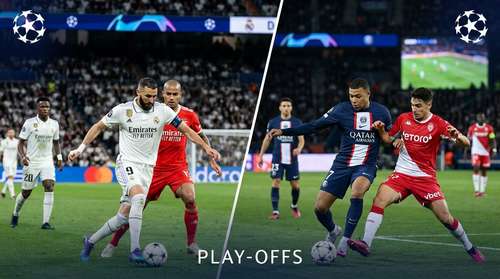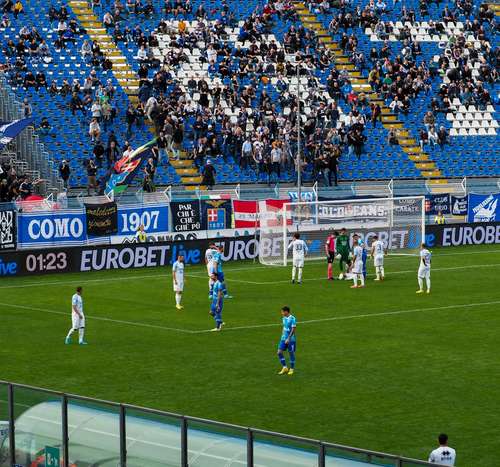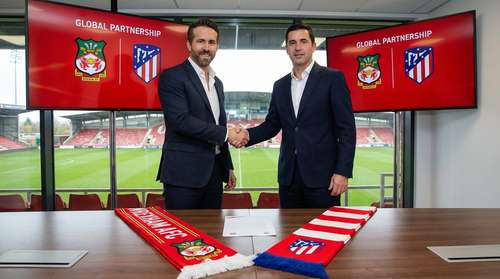Chelsea manager Enzo Maresca recently made headlines after strongly criticizing the weather delays that disrupted his side's match at the Club World Cup. The Chelsea boss didn't mince his words, arguing that the lightning concerns had not only affected the flow of the game but also raised questions about tournament scheduling. Fans and pundits alike have been buzzing with opinions and speculations about whether future competitions should consider indoor venues to avoid such unpredictable disruptions.
It’s not every day you witness a top-level manager openly voicing his frustration over something as uncontrollable as weather. Yet, here we are, reading about a scenario where natural elements and the passion of international football collided, leaving both teams and fans in limbo. How often do we see weather delays being taken so personally in global soccer? Perhaps this incident will spark a broader discussion on scheduling and venue suitability in high-profile tournaments like the Club World Cup.
Weather Delays and Their Impact on Game Flow
The Club World Cup is meant to be an arena where the best of international football showcase their skills. In this context, any disruption can significantly impact the integrity of the game. Maresca argued that the unexpected interruptions due to lightning concerns have a profound effect on team performance and match rhythm. It’s almost as if the weather played a referee role, and not in a pleasant way.
When factors beyond a team’s control interfere with planned strategies, it’s understandable that even top-tier managers might feel frustrated. Maresca pointed out that during games in major tournaments like the World Cup or the European Championships, similar delays are minimized or handled with greater consistency. The Chelsea manager inferred that the current setup leaves room for improvement concerning the tournament schedule and logistics. Football news outlets are now busy dissecting the remarks, with many agreeing that the integrity of the match is paramount.
One could compare these weather delays to sudden technical difficulties during a live concert. Just as an unexpected power outage might ruin the vibe and performance of a musical act, lightning interruptions can throw off the rhythm and spirit of a hard-fought soccer match. Chelsea FC, known for their resilience and tactical prowess, simply should not have to deal with these avoidable disruptions, which could potentially impact the outcome of a game.
Lessons Learned for Future Tournaments
Looking ahead, Maresca’s criticism calls for a deeper rethink regarding tournament scheduling. With increasing evidence that weather delays can shake up crucial fixtures, the argument for indoor venues in future competitions is gaining traction. There’s an ongoing debate about whether organizing games in controlled environments might preserve match integrity and uphold competitive standards.
Imagine a scenario where international football moves into state-of-the-art indoor arenas specifically built to counter weather impacts. This idea is currently being floated around in several sports criticism circles. While there might be initial resistance to such radical changes, the increasing frequency of unpredictable weather patterns only underscores the need for innovative solutions.
Detractors might argue that part of soccer’s charm lies in its unpredictability, but it’s hard to justify severe delays that mar a competition like the Club World Cup. Chelsea manager Enzo Maresca stressed that his team’s performance was disrupted, which ultimately affects the overall experience for both players and fans. With global soccer evolving rapidly, even traditional aspects of the game must adapt to modern standards and challenges.
Comparison with Major International Tournaments
When you think about tournaments such as the World Cup or the European Championships, what stands out is their meticulous planning and contingency measures. Maresca’s observations are not far-fetched in this light. There is a clear disparity between the measures adopted by these elite competitions and the setup at the current Club World Cup.
Short interruptions can feel like a minor setback in a well-orchestrated World Cup match, thanks to efficient management and robust infrastructure. In contrast, the delays experienced in the Club World Cup not only disrupt the momentum but also raise questions about fairness and game integrity. It’s like watching a paint job being ruined by an unexpected rainstorm—frustrating and completely avoidable with the right protective measures.
The manager’s remarks remind us that soccer, especially in international club competitions, demands consistency and fairness. While the weather is an uncontrollable external factor, the way it is managed certainly isn’t. Chelsea news outlets and sports events commentators are now pressing for a review of the current protocols to ensure that future matches are as seamless as possible.
Reactions from the Football Community
Following these dramatic weather delays, reactions among the football world have been varied. Some fans empathize with Chelsea manager Enzo Maresca, feeling that the interruptions did more harm than expected to the team’s already determined performance. Meanwhile, others see his comments as a call to action for improved sports management and better scheduling for high-profile matches.
There’s been a flurry of soccer updates and sports criticism across multiple channels. Observers have noted that the situation underscores an important point: unforeseen weather issues are not just a nuisance but can have strategic implications. Fans often wonder if a top player or coach might have a moment of vulnerability when such delays occur. And indeed, Maresca’s open criticism provides a human face to the frustrations many experience when conditions aren’t optimal.
The managerial task isn’t just about mastering tactics on the pitch but also about navigating the unpredictable nature of outdoor sports. This incident has sparked conversations about whether tournament casinos should consider backup indoor venues or enhanced safety protocols for weather impact. Given that Chelsea FC is no stranger to high-pressure environments, it’s clear that living in such unpredictability isn’t ideal for either players or fans.
It’s essential to recognize that addressing these weather issues might also aid in better planning for future matches, offering a more stable platform for international football. The point isn’t to remove the thrill of unpredictability entirely but to establish measures that can help teams maintain their composure irrespective of external interruptions. A balanced approach could well be the future of soccer management at this level.
Final Thoughts on Tournament Organization
As we look forward, the conversation initiated by Maresca’s remarks will likely influence discussions on tournament organization and scheduling logistics. The Club World Cup, a showcase for global soccer, needs to adapt to modern challenges without compromising on the excitement and competitiveness that define the sport.
It feels as though the clouds have rolled in not just over the pitch but over the future directions of the tournament schedule itself. With these critical voices leading the way, the organizers could very well be pushed towards innovative solutions that blend tradition with state-of-the-art facilities. Will future competitions see a shift towards indoor arenas or enhanced weather protocols? Only time will tell, but one thing is clear: the integrity of the match and the performance of the teams should remain the top priority.
In summary, the incident has ignited a vital debate on how best to manage weather-related interruptions, making it a significant topic in international football news. For Chelsea FC, and indeed for all teams competing at the highest level, ensuring that every match is played in conditions that best showcase their talent is crucial. The fallout from this criticism may just be the spark needed for change in the world of sports events and tournament organization.




